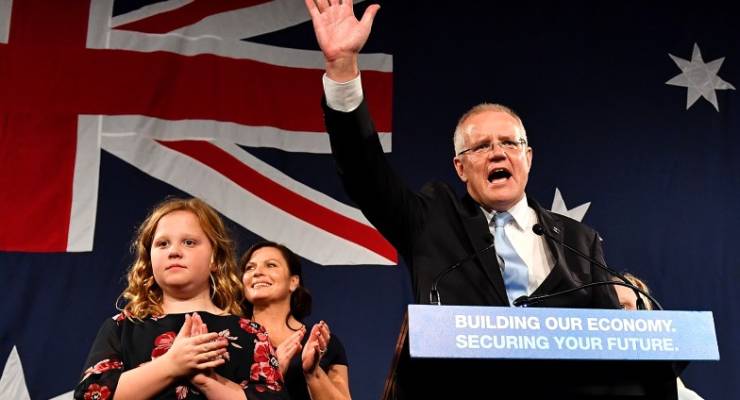
Political donations from fossil fuel interests dominated federal politics in 2018-19 as Clive Palmer’s historic spending dominated the federal election campaign, Australian Electoral Commission figures for 2018-19 show.
Palmer’s company Mineralogy handed his United Australia Party (UAP) more than $83 million in by far the largest political donation ever made, aimed at preventing Labor from winning the election. Palmer, a climate sceptic, is pushing for the development of mammoth coal mines in Queensland’s Galilee Basin via his coal company Waratah Coal, which also donated $150,000 to the UAP.
Right-wing industrial relations employer group the Australian Petroleum Production and Exploration Association was also a major donor, handing more than $160,000 to the Coalition and $77,000 to Labor across different branches.
Energy company Woodside, which enjoys extraordinary access to and protection from the federal government under both sides, gave $148,000 to the Coalition and $135,000 to Labor. Gas company Santos, which will enjoy a taxpayer-funded windfall courtesy of Scott Morrison’s energy deal with NSW, gifted $79,000 to the Coalition and $69,500 to Labor, while Origin Energy handed around $50,000 to both sides. Adani gave just under $100,000 in total to the Coalition.
Outside of Palmer’s efforts, mining and energy companies handed a total of $867,000 to the Coalition’s branches across Australia and $574,000 to the ALP. Climate sceptic Michael Hintze also gave the federal Liberals $35,000.
While donations from the fossil fuel sector were consistent with previous years, Palmer’s spending dramatically shifted the political playing field against climate action.
Even grouping the Labor and Greens spending together and combining it with third-party spending like GetUp ($2.3 million) and the Australian Youth Climate Coalition ($360,000), election spending aimed at promoting any kind of climate action, limited or ambitious, was hopelessly outmatched by fossil fuel interest cash in the system.
In a year that would become known for the catastrophic consequences of climate change across the country, its election was dominated by fossil fuel interests spending up big to prevent any climate action.








Just goes to show, money can buy miracles!
Hi Bernard – just one tangential question, why do you continue to use the phrase “Climate sceptic”? For most of the people thus described, there is no scepticism involved, in the sense that there is no possible evidence that would convince them. They are out-and-out denialists.
You know, Ian, I’m not sure “sceptic” or “denier” fit the likes of the Palmers of this world. I think they know it’s happening, but they couldn’t care less, so long as they’re making money.
To what extent were donations from unions aimed at protecting mining jobs (and jobs associated with the mining industry) considered in the preparation of this article?
How gullible is Australia….
I believe in miracles but with a little bit of help from Clive.